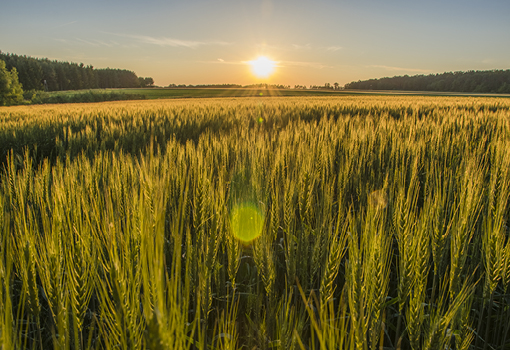At Kemin, we believe in the value of partnerships in contributing to sustainability. Our mission is to sustainably transform the quality of life every day for 80 percent of the world — something we simply cannot do without the support of our suppliers and partner companies.
That’s why, together with two of our partners, Adesco and Dow, we’ve conducted a gate-to-gate Life Cycle Impact Assessment, investigating greenhouse gas emissions in CO2 equivalents in a study verified by Blonk Consultants.
The outcomes of this joint study demonstrated that liquid preservative treated grain reduced up to 3 times the CO2 emissions of stored grain, in comparison to aerated and dried stored grains. This proves that the use of our product, Myco CURBⓇ Liquid to treat grain, helps our customers become more sustainable in their overall grain production.

The Life Cycle Impact Assessment is a holistic approach in which we examine how our solutions contribute sustainably — through a reduction in CO2-eq per kilogram of raw materials to compound feeds and finally our foods, through the complete value chain to improve feed storage, feed processing, animal productivity, and welfare. This in turn contributes to overall efficiency and profitability.
We believe that Life Cycle Impact Assessments in which we carefully study the complete value chain using a data-driven approach, allows us to accurately evaluate the environmental impact, and remain agile in continuously improving our solutions and practices. In turn, this enables us to contribute to our customers’ sustainability impact and journey.
We know that the growing human population is driving global demand for food which impacts grain production. A substantial increase in grain production — as much as 70% — is needed globally to meet the needs of this growth. Given the limited resources and availability of uncultivated land, it is projected that grain production needs to come mostly from existing farmland that is met with minimal environmental impacts. This can only be achieved if high yielding technologies are transferred and adapted to these croplands and if global technological improvements are implemented. To meet the global demand and avoid the environmental impact of agricultural expansion, high crop yields from existing farmlands, especially those seen in under yielding croplands, achieved with technological advances, is of great importance.

Rising greenhouse emissions have elevated concerns about the impact on the planet and the effects of climate change. Consequently, the United Nations established the 17 Sustainable Development Goals which aim to improve this situation and to restore and promote social, economic and environmental sustainability. Goal 13 specifically states that we need to: “[t]ake urgent action to combat climate change and its impacts.” As such, actions need to be integrated into national policy, strategies, planning, and subsequently integrated into companies and businesses in our industry.
Therefore, identifying measures to reduce on-farm emissions can help in realising this goal. This is why our study together with Dow, is so crucial since it demonstrates the reduction of CO2 emissions of Myco CURB liquid treated grain. We want to share these insights and knowledge with our customers and encourage them to equally adopt practices that contribute to sustainability.
A crucial step for Kemin and Dow is the analysis of the carbon footprint of stored grains preserved with Kemin’s solution Myco CURB® ES liquid compared to other grain storage methods. Therefore, in collaboration with Dow and Adesco, we conducted a gate-to-gate Life Cycle Assessment study to investigate the greenhouse gas emission in CO2 equivalents (CO2-eq) between three different methods of grain (Barley and wheat) storage; aeration, drying and preservative addition.
The study showed that Myco CURB ES liquid treated grain reduces up to 3 times the kg CO2-eq per ton of stored grain compared to aerated and dried grains. As a result, the carbon footprint of 1 kg of Myco CURB ES liquid is 2.3 kg of CO2-equivalent.
Blonk Consultants, an external party, audited the study and provided us with certification that the Life Cycle Assessment on Myco CURB ES Liquid meets the requirements of ISO 14040 and 14044.
The results from our study show that drying and aerated grain has the highest negative climate change impact/carbon footprint compared to Myco CURB ES liquid treated grain. The addition of a mould inhibitor, a preservative, based on propionic acid and a synergistic combination of surfactants, other organic acids and their salts, enables a reduction of approximately 2 to 3 times the carbon footprint in kg CO2-eq/ton grain stored compared to aeration and drying methods, respectively.
This information is crucial for our customers since these are insights one can use immediately to optimise one’s sustainability footprint.
© Kemin Industries, Inc. and its group of companies 2026 all rights reserved. ® ™ Trademarks of Kemin Industries, Inc., USA
Certain statements may not be applicable in all geographical regions. Product labeling and associated claims may differ based upon government requirements.